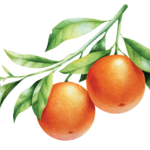 What comes to mind when you think of vitamin C? Oranges? The common cold? Scurvy? For one of the human body’s most vital nutrients, there is a lot of misinformation surrounding it. Let’s dive into how this vitamin helps and protects the body.
What comes to mind when you think of vitamin C? Oranges? The common cold? Scurvy? For one of the human body’s most vital nutrients, there is a lot of misinformation surrounding it. Let’s dive into how this vitamin helps and protects the body.
WHAT IS VITAMIN C?
Vitamin C is a water-soluble nutrient that is naturally found in some foods.1,2 Humans, unlike most animals, are unable to synthesize or store their own vitamin C, so it is essential that they find an outside source and consume 3it regularly. That’s why certain foods and drinks, like orange juice and some breakfast cereals, are fortified with it. It is also available as a dietary supplement. Vitamin C plays a major role in the body and is essential in the prevention and treatment of numerous health conditions. Luckily, its deficiency is rare in developed countries.3
WHY IS IT IMPORTANT?
Muscle and wound healing. Vitamin C is needed to make collagen, a fibrous protein that is the main component in connective tissue and the most abundant protein in mammals.3 It is present throughout various systems in the body, including the nervous, immune, and cardiovascular systems, as well as bone and cartilage. One to two percent of muscle tissues, such as tendons and ligaments, skin, and cartilage, is made up of collagen.4 Because vitamin C contributes significantly to building collagen, muscle strains and tears and skin wounds and burns typically heal more quickly in people with higher levels of vitamin C.5
Immune system. Vitamin C is a powerful antioxidant.5 Antioxidants can decrease and prevent the effects of free radicals, which are unstable atoms. When there is an imbalance of antioxidants and free radicals in the body, it can trigger a response called oxidative stress.6 This process can damage other cells, and as a result, can make the body more susceptible to disease and aging. The ability of antioxidants to control free radicals helps maintain the structural integrity of cells and tissues.7 This can protect and strengthen your body’s immune system and stimulate the activity of white blood cells.
Anemia prevention. Vitamin C enhances the availability and absorption of non-heme iron, the type of iron found in plants. This nutrient can improve the absorption of
iron by changing it into a form that is more easily accepted by the body. Vitamin C can be especially important for vegetarians or vegans to consume because meat is a major source of iron. A high level of this vitamin can help prevent anemia, a deficiency of red blood cells or hemoglobin in the blood.8 In fact, consuming 100mg of vitamin C has been shown to increase iron absorption by 67 percent.9
WHERE CAN I FIND IT?
Fruits and vegetables are the best source of vitamin C. Vitamin C can be found in citrus, bell peppers, strawberries, tomatoes, white potatoes, and cruciferous vegetables, such as brussels sprouts and broccoli.4,10 However, it is important to know that a fruit or vegetable’s level of vitamin C can be greatly reduced when cooked. Because this nutrient is water soluble, vitamin C’s presence is easily undermined by heat.4
Fast Fact: Vitamin C cannot actually prevent you from catching a cold, but there is modest evidence supporting vitamin C’s ability to reduce the severity and duration of a cold, if consumed at the onset of symptoms.5,10
SOURCES
1. Chambial S, Dwivedi S, Shukla KK, et al. Vitamin C in disease prevention and cure: an overview. Indian J Clin Biochem. 2013;28(4):314–328.
2. Vitamin C. National Institutes of Health Office of Dietary Supplements website. February 27, 2020. https://ods.od.nih.gov/factsheets/VitaminC- HealthProfessional/. Accessed July 29, 2020.
3. Wilson DR. Vitamin C: Why is it important? Medical News Today website. April 10, 2017. https://www. medicalnewstoday.com/articles/219352. Accessed July 29, 2020.
4. Vitamin C. Harvard T.H. Chan School of Public Health website. https://www.hsph.harvard.edu/ nutritionsource/vitamin-c/. Accessed July 29, 2020.
5. Lykkesfeldt J, Michels AJ, Frei B. Vitamin C. Adv Nutr. 2014;5(1):16–18.
6. Lobo V, Patil A, Phatak A, et al. Free radicals, antioxidants and functional foods: Impact on human health. Pharmacogn Rev. 2010;4(8):118–126.
7. Bendich A. Physiological role of antioxidants in the immune system. J Dairy Sci. 1993;76(9):2789–2794.
8. Rayman R. 7 Impressive Ways Vitamin C Benefits Your Body. Healthline website. February 19, 2020. https:// www.healthline.com/nutrition/vitamin-c-benefits. Accessed July 29, 2020.
9. Hallberg L, Hulthén L. Prediction of dietary iron absorption: an algorithm for calculating absorption and bioavailability of dietary iron. Am J Clin Nutr. 2000;72(5):1242.
10. Institute of Medicine (US) Committee on International Nutrition—Vitamin C in Food Aid Commodities. Vitamin C Fortification of Food Aid Commodities: Final Report. Washington (DC): National Academies Press (US);1997.





